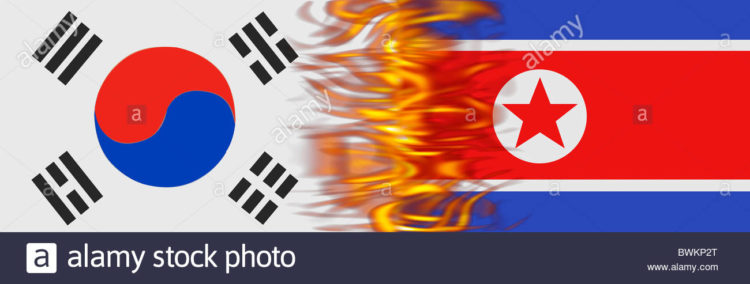Pompeo Says U.S. Agreed to `Alter’ Korea Armistice at Kim Summit

(Bloomberg) —
President Donald Trump has agreed to “alter” the 1953 armistice halting the Korean War if North Korea gives up its nuclear weapons, Secretary of State Mike Pompeo said, revealing an apparent promise from Trump’s summit with Kim Jong Un that wasn’t announced at the time.
“He has made very clear his commitment to fully denuclearize his country,” Pompeo said of the North Korean leader during a speech at the Detroit Economic Club on Monday. “In return for that, the president has committed to making sure that we alter the armistice agreement, provide the security assurances that Chairman Kim needs.”
Before the June 12 summit, Trump raised the possibility that a formal peace treaty ending the Korean War of 1950-1953 could be one outcome of his meeting with Kim. But the joint statement the pair signed made no such promise. Instead, it said only that the U.S. and North Korea would “join their efforts to build a lasting and stable peace regime on the Korean Peninsula.”
White House Press Secretary Sarah Huckabee Sanders told reporters later on Monday that “We’re finalizing the details of what the process will look like. Certainly would confirm Secretary Pompeo’s comments.”
A National Security Council official, who asked not to be named to speak about private deliberations, said that the two sides had committed to the building of a peace mechanism whose eventual goal would be to replace the armistice.
Military Exercises
It wasn’t the first time the administration disclosed a U.S. commitment from the summit that wasn’t cited in the final document. Hours after meeting Kim in Singapore, Trump told reporters the U.S. would suspend military exercises with South Korea as long as North Korea continues down the path toward denuclearization.
Trump was criticized for suspending the exercises without a major concession in return. A promise to alter the armistice raises questions because it’s not something the U.S. could do on its own: Any formal treaty would probably need a sign-off from other nations, including China, and need ratification from the United Nations Security Council.
Trump hinted to reporters after the Singapore summit that the two sides had come to several agreements that weren’t mentioned in the joint declaration.
“What we signed today was a lot of things included,” Trump said. “And then you have things that weren’t included that we got after the deal was signed. I’ve done that before in my life. And we didn’t put it in the agreement because we didn’t have time.”



No Comment